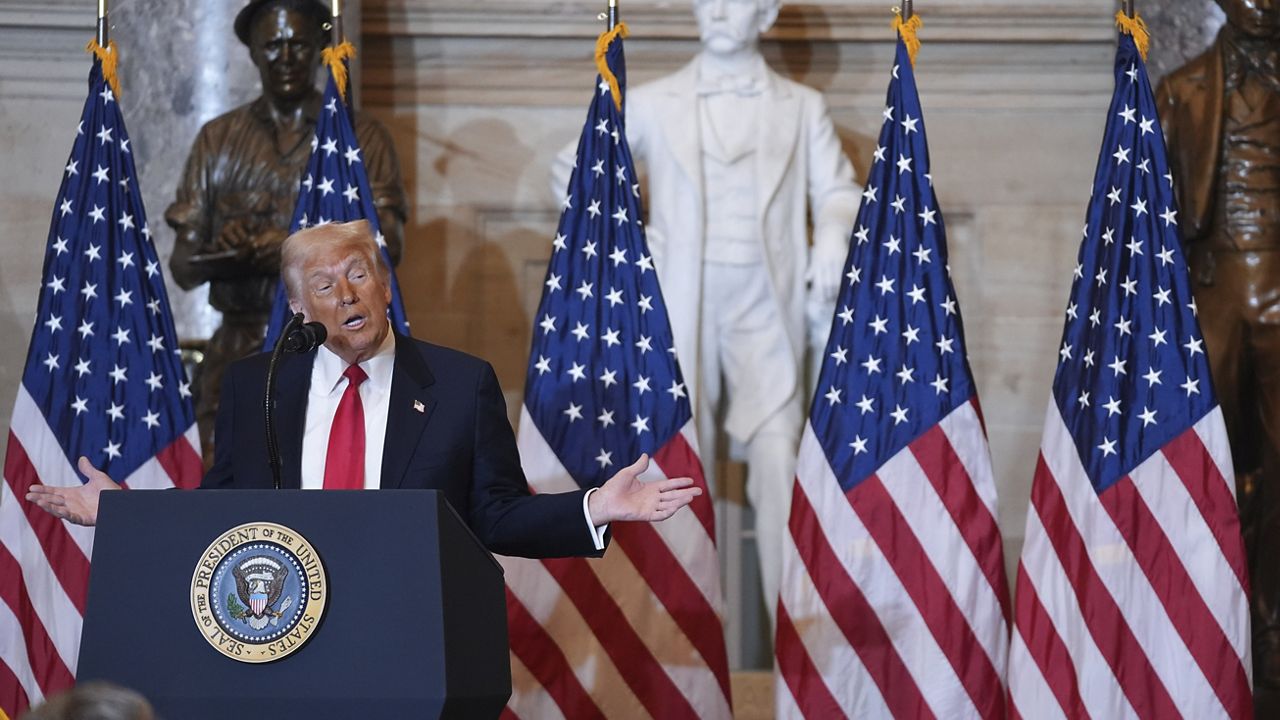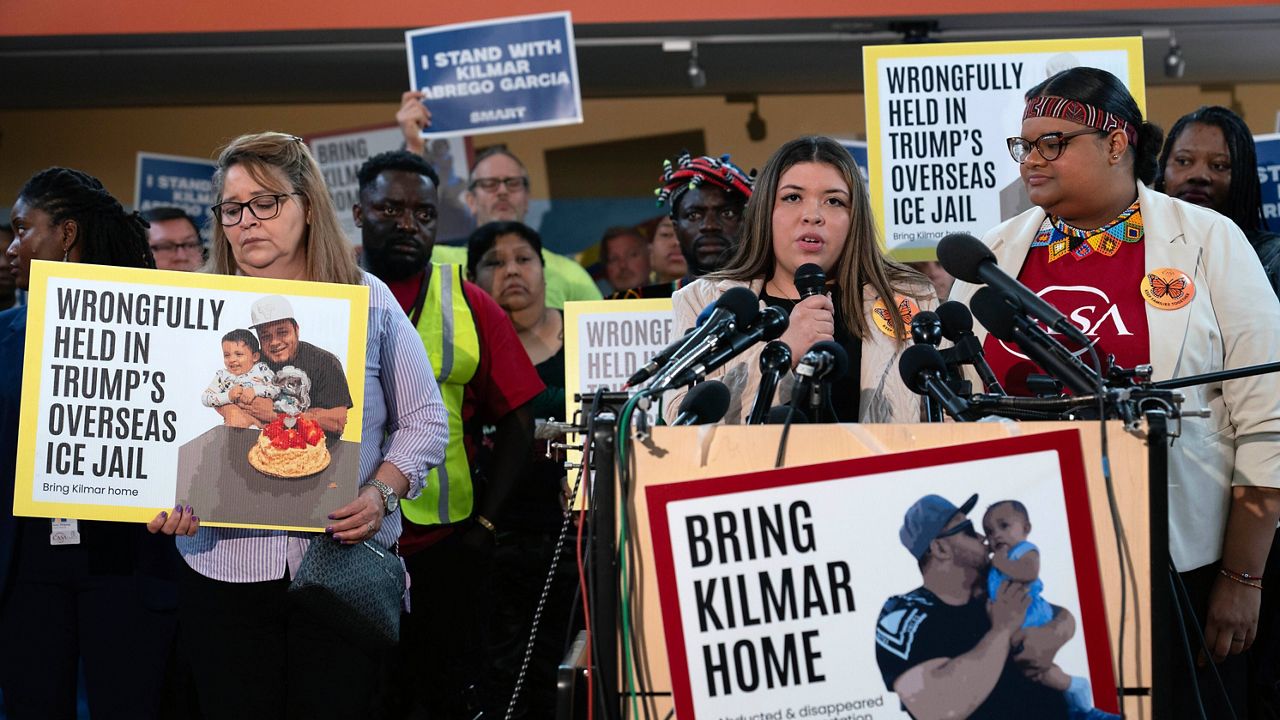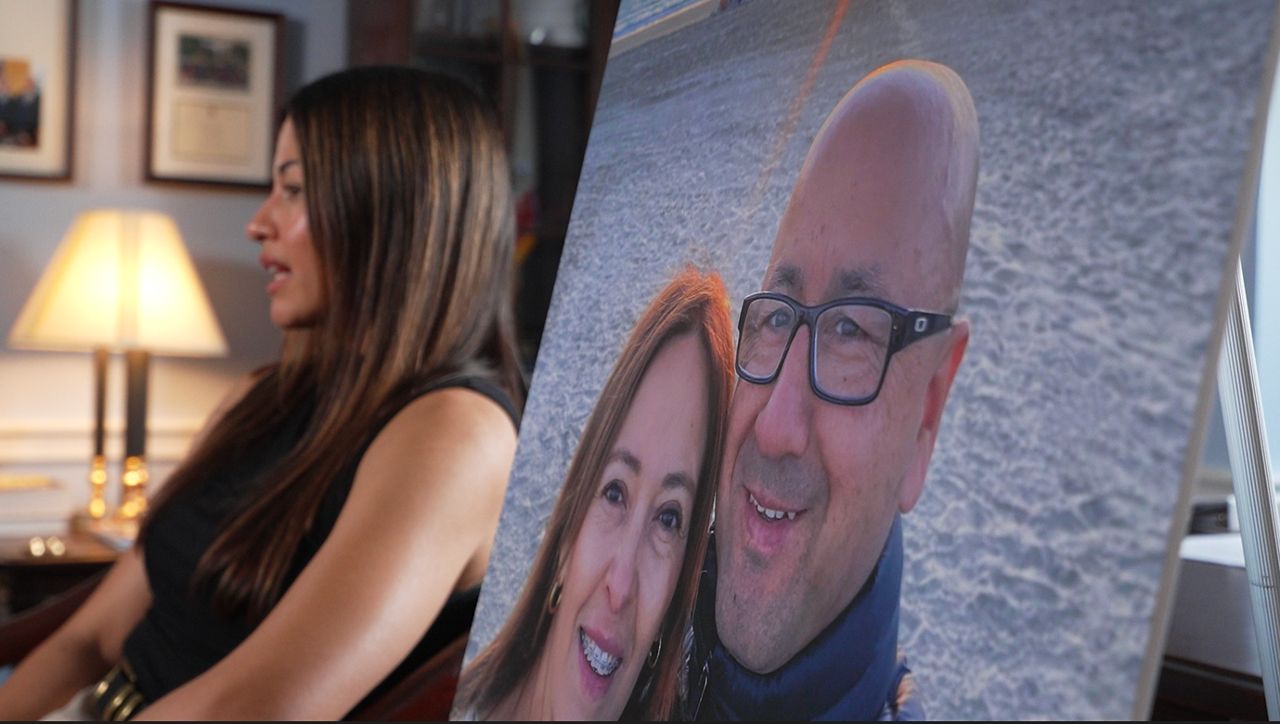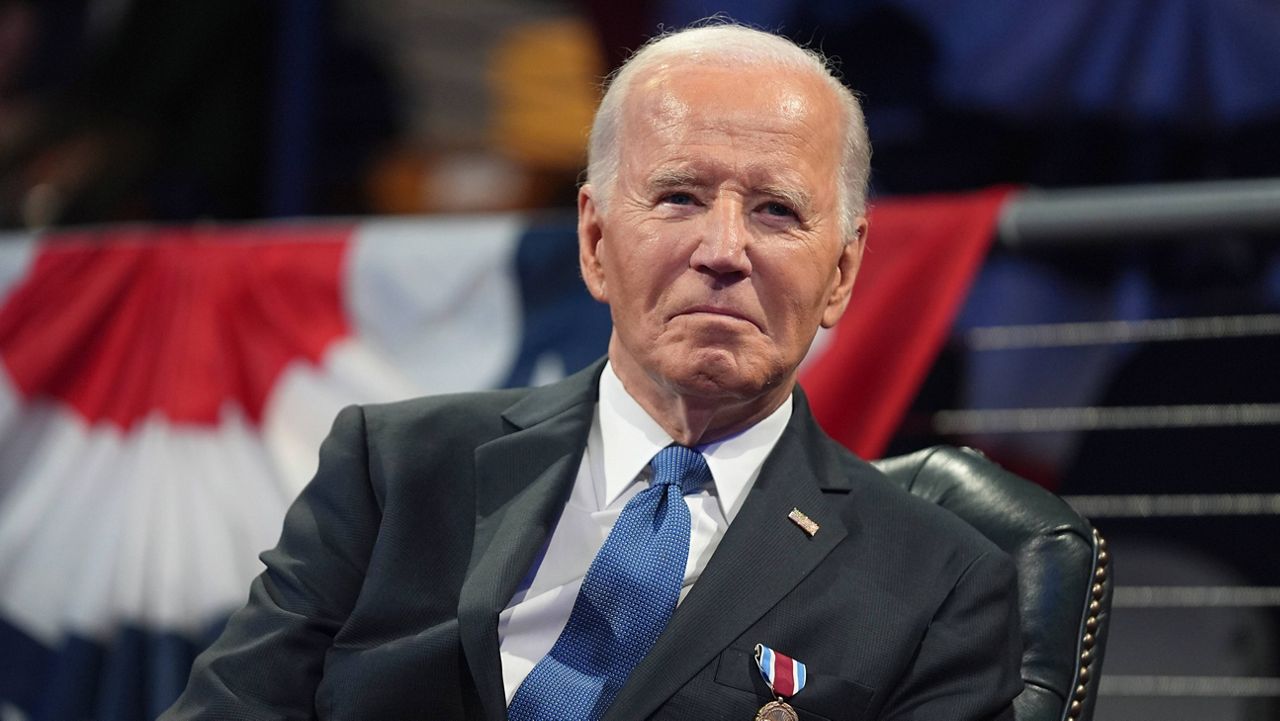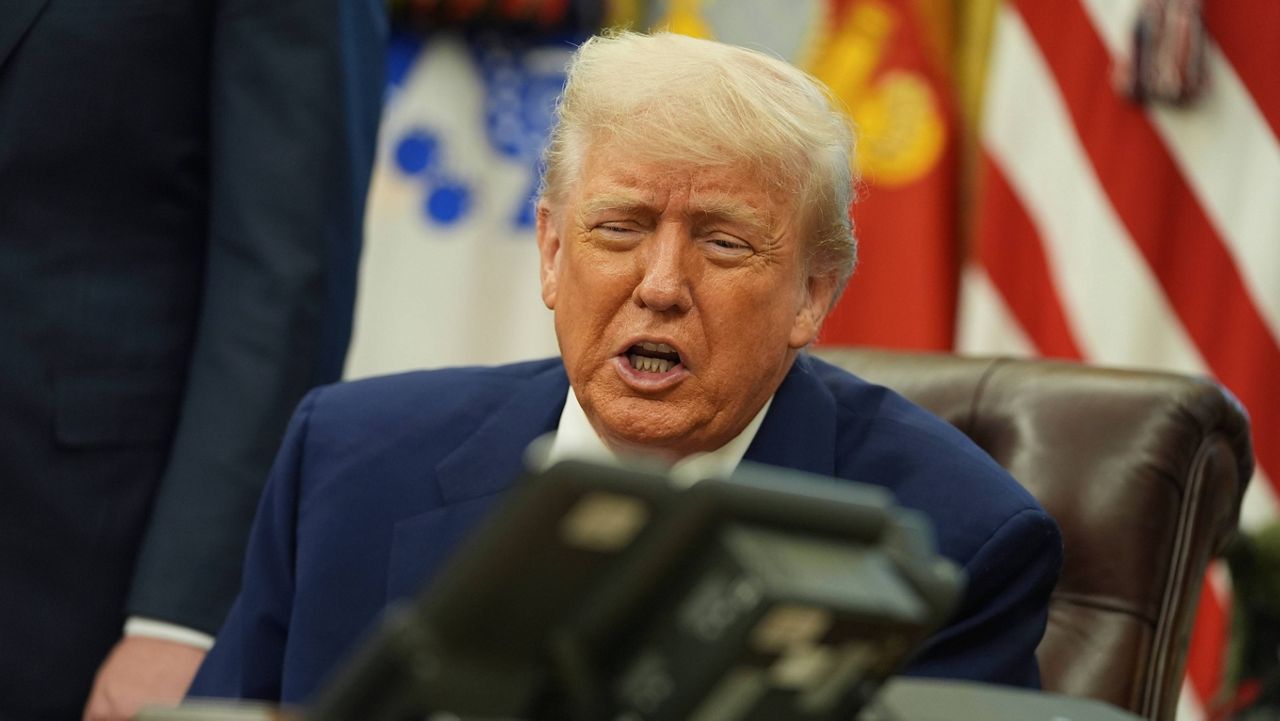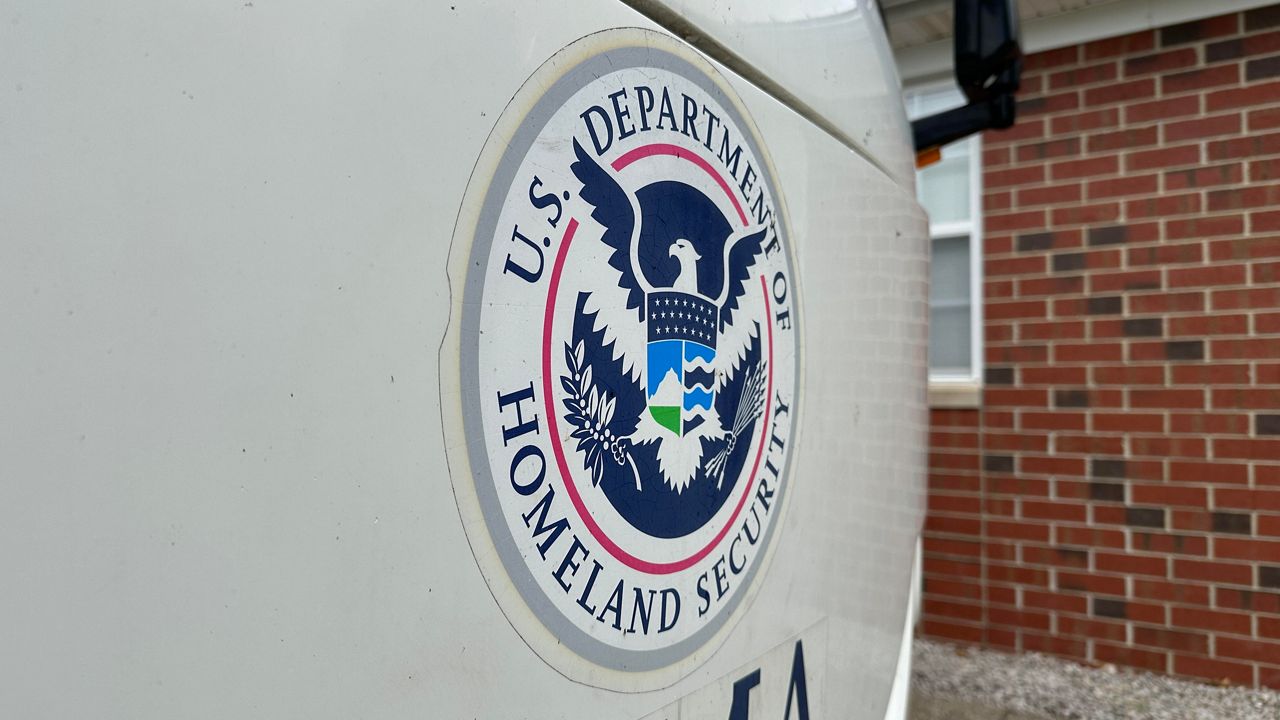WASHINGTON — President Donald Trump said Thursday that he wants to root out “anti-Christian bias” in the U.S., announcing that he was forming a task force led by Attorney General Pam Bondi to investigate the “targeting” of Christians.
Speaking at a pair of events in Washington surrounding the the National Prayer Breakfast, Trump said the task force would be directed to “immediately halt all forms of anti-Christian targeting and discrimination within the federal government, including at the DOJ, which was absolutely terrible, the IRS, the FBI — terrible — and other agencies.”
Trump said Bondi would also work to “fully prosecute anti-Christian violence and vandalism in our society and to move heaven and earth to defend the rights of Christians and religious believers nationwide.”
Hours after the two events, Trump signed an executive order directing the new task force to identify unlawful policies, practices, or conduct by all executive departments and agencies, and recommend any additional presidential or legislative action.
Early in the day, the president joined the National Prayer Breakfast at the Capitol, a more than 70-year-old Washington tradition that brings together a bipartisan group of lawmakers for fellowship. He told lawmakers there that his relationship with religion had “changed” after a pair of failed assassination attempts last year and urged Americans to “bring God back" into their lives.
An hour after calling for “unity” on Capitol Hill, though, Trump struck a more partisan tone at the second event across town, announcing that, in addition to the task force, he was forming a commission on religious liberty. He criticized the Biden administration for “persecution” of believers for prosecuting anti-abortion advocates.
Trump’s new task force drew criticism from Americans United for Separation of Church and State.
“Rather than protecting religious beliefs, this task force will misuse religious freedom to justify bigotry, discrimination, and the subversion of our civil rights laws," said Rachel Laser, the group’s president and CEO.
At the Capitol, Trump said he believes people "can’t be happy without religion, without that belief. Let’s bring religion back. Let’s bring God back into our lives.”
The Rev. Paul Brandeis Raushenbush, a Baptist minister and head of the progressive Interfaith Alliance, accused Trump of hypocrisy in claiming to champion religion by creating the task force.
“From allowing immigration raids in churches, to targeting faith-based charities, to suppressing religious diversity, the Trump Administration’s aggressive government overreach is infringing on religious freedom in a way we haven’t seen for generations,” Raushenbush said in a statement.
Kelly Shackelford, head of First Liberty Institute, a conservative Christian legal organization, disagreed, praising the creation of the task force and religious liberty commission.
“All Americans should be free to exercise their faith without government intrusion in school, in the military, in the workplace, and in the public square. We are ready to stand with President Trump to ensure that the religious liberty of every American is safe and secure,” Shackelford said in a statement.
Trump also announced the creation of a White House faith office led by Paula White-Cain, a longtime pastor in the independent charismatic world. An early supporter of Trump’s 2016 presidency bid, she led Trump’s Faith and Opportunity Initiative in 2019, advising faith-based organizations on ways to partner with the federal government.
At Thursday’s prayer breakfast, she praised Trump as “the greatest champion” any president has been “of religion, of faith and of God.”
He said the faith-based office — depending on its mandate — may not raise major concerns. Past presidents have had similar ones.
The Republican president, who's a nondenominational Christian, called religious liberty “part of the bedrock of American life” and called for protecting it with “absolute devotion.”
Vice President JD Vance, who's Catholic, has sparred with top U.S. leaders of his own church over immigration issues. And many clergy members across the country are worried about the removal of churches from the sensitive-areas list, allowing federal officials to conduct immigration actions at places of worship.




